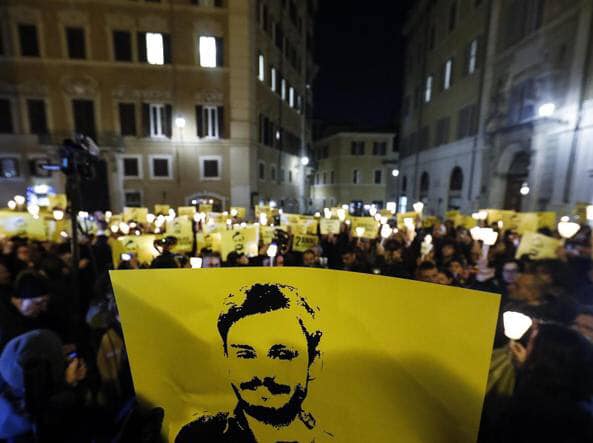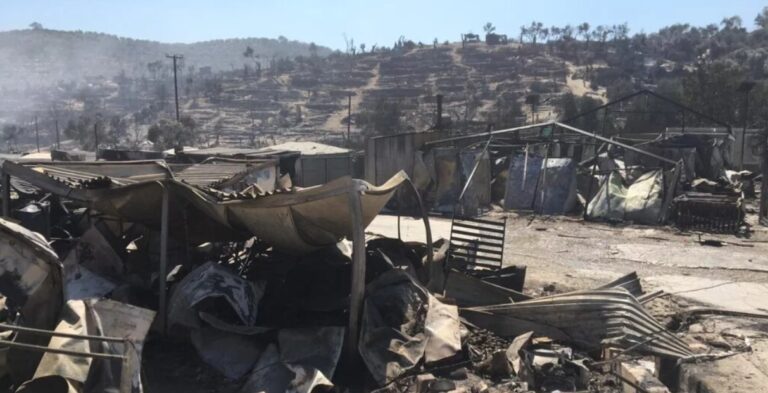An interview to Maydan member Ibrahim Heggy, originally published in Italian on Redattore Sociale by Alice Facchini. Ibrahim Heggi is the European spokesman of the 6th of April Movement: after 21 days of detention, in 2008 he moved to Milan, and today he cannot return to his country because it would be too dangerous. “The same fate could happen to Patrick after his release.”
“Many political prisoners, after liberation, are let go abroad, then at trial they are sentenced so heavy penalties that they can no longer return to Egypt. In fact, they rather take the road to exile. This is what could probably happen to Patrick if he were released”. A human rights activist, 37 years old, a degree in mechanical engineering, Ibrahim Heggi lives today in Milan, Italy, and works as a cultural mediator. He is the European spokesman for the 6th of April Movement, which was created to support the workers of El-Mahalla El-Kubra during the 2008 great general strike against Mubarak’s regime. Since then, the movement has been fighting alongside Egyptian citizens to demand greater freedoms and protect their rights: among other things, the group demands the release of yet another political prisoner under the regime’s detention, Patrick Zaki, the Egyptian student from the University of Bologna arrested on the 7th of February 2020 while in Egypt, and currently in Cairo’s Tora prison, on charges of terrorism and subversion.
“I myself spent twenty-one days in Egyptian prisons, after the great demonstrations of 2008: I was threatened, beaten, tortured – says Ibrahim. I went through a devastating experience on a psychological level, but nothing compared to the tortures that take place today under Al-Sisi’s regime, which are much more ferocious. Compared to today’s practices, the climate under Mubarak was more open and in a certain sense more tolerant. Since Al-Sisi has been in power, everyone who has anything against the military regime has to pay: Islamists, communists, nationalists, journalists, lawyers, researchers… no matter who they are, anyone who talks about human rights is slaughtered”.
Once free, Ibrahim left Egypt, taking the path of a voluntary exile. “I remember my father saying to me: ‘You’re going about it the wrong way: if you really want to change the world, you have to get out of this country’.”
So, he packed his bags and moved to Italy, where his sister already lived. Since then, he has only returned to Egypt once, in August 2011, to closely follow the revolutionary ferment taking place after Tahrir Square’s occupation. “I had decided it was time to come back – he explains – I missed the square, I missed that moment in life. And yet, I immediately realized that in those last three years the situation had got even worse: human rights violations were more serious, the repression harder, and the army was shooting at young people in the streets”.
So, on September 11, 2011 Ibrahim returns to Italy, this time to never come back: “I haven’t seen my parents since then – he says. My family is not safe, I know I am also ‘controlled’ from a distance and so I always keep a low profile on social networks. I continue to do activism but staying in the shadows, I don’t look for visibility”. Ibrahim does not have any charges pending against him, but he has received clear and strong recommendations from friends and lawyers, who advised him not to go back. Especially after the murder of Giulio Regeni, since he has been cooperating in the investigations.
“It is the same thing that could happen to Patrick after his liberation: the regime follows this strategy – he explains. Egyptians are arrested, they live a very traumatic experience in prison, then they are freed as if it were a gesture of grace by the president. Once you are out, you begin receiving more or less direct messages that ‘invite’ you to go abroad: they push your boss to fire you, mount media campaigns against you, exclude you from your political party, damage your economic activity… In short, they make scorched earth around you. Sometimes, there are also physical attacks, beatings, or telephone threats: ‘Either you leave, or you’ll be killed’. You then end up expatriating, and in the meantime the judicial process goes on: after a few months, the sentence arrives, usually very heavy, and so you can never go back home”.
This is what happened to Ahmed Samih, director of Al-Andalus Institute for Tolerance and Anti-violence Studies, who in 2012 during a trip to Uganda was warned not to return to Egypt, because he would risk arrest. In 2016, it was then the turn of the physician Taher Mokhtar, who after months of imprisonment had to escape to Lebanon and then to France: a sentence of 10 years of detention weighs on him. In the same year, it was also the turn of Ahmed Said, poet and human rights defender, who was released from prison with a presidential amnesty and moved to Germany. Since then he has not been able to return, but he has continued to be highly active on social issues. Soon, however, the repercussions came: they arrested his mother and released her only a few days after Ahmed stopped posting critical content on Internet.
“There are, alas, a lot of stories like these, and Patrick Zaki could become yet another one – concludes Ibrahim. Anyway, we Egyptians who live abroad continue to fight, as we can, even from afar. For some racist Italian people, I am just a foreigner who should go back home, for the Egyptians instead I am a spy of the Italians who discloses the regime’s repressive methods. I feel like just a world’s citizen, defending human rights beyond borders and nations”.
August 3, 2020.




